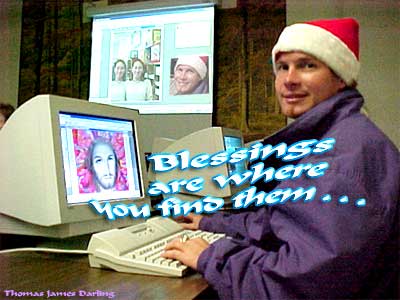

Too many community college learners are caught in a system that encourages rote-memory strategies and recognizes only two ways of being "smart"—linguistic (word-smart) and logical/mathematical (number-smart) intelligence. Colleges striving to become more learning-centered must implement teaching and evaluation methods that reach all students, honor learning diversity, and encourage meaningful learning. (René Díaz-Lefebvre)
Between midnight and dawn when sleep will not come and all the old wounds begin to ache, I often have a nightmare vision of a future all numbered and registered, with not a gleam of genius anywhere, not an original mind, a rich personality on the whole packed globe. The twin ideals of our time, organization and quantity, will have won forever. (J.B. Priestly)

To plan the nonplan: that is to equip yourself. If you have a goal in a very complex world of interdependencies and then try to define all actions that lead toward this goal, you're going to build a rigid bureaucracy that will collapse. (Manuel Castells, Wired, Nov. 1998, p. 188)
In Nanterre, and the May ‘68 movement, most of the leaders were what I would call, including myself, radical libertarians — but it was a bit deeper than today's libertarian trend for the cultural and business élite. We cared about the problems of social exclusion. (Manuel Castells)
By "black holes" I mean areas of social exclusion that can be marginalized and the system doesn't suffer at all. They're not valuable as producers, consumers, — in fact, if they would disappear, the logic of the entire system would improve. If you are outside the network, in other words, you don't even exist. (Manuel Castells, UCB Sociologist describing the black holes of informational capitalism.)
If we decide that everything has to be linked up through computers, and that's the way society should be organized regardless of the cost . . . Any ideology that says this is the one best way to organize the world could lead to a new form of terror, even the terror of networks. We need Utopias — on the condition of not trying to make them into practical recipes. (Manuel Castells)
RECOMMENDED READING
Cyber Rights: Defending Free Speech in the Digital Age, Mike Godwin, New York: Times Books, 1998
Give Me Liberty: Freeing Ourselves in the Twenty-first Century, Gerry Spence, New York: St.Martin's Press, 1998
The Catepillar Doesn't Know: How Personal Change is Creating Organizational Change, Kenneth R. Hey and Peter D. Moore, New York: The Free Press, 1998
Then what is the answer? — Not to be deluded by dreams.
To know that great civilizations have broken down into violence,
and their tyrants came, many times before.
When open violence appears, to avoid it with honor or choose
the least ugly faction; these evils are essential.
To keep one's own integrity, be merciful and uncorrupted
and not wish for evil; and not be duped
by dreams of universal justice or happiness.
These dreams will not be fulfilled.
To know this and know that however ugly the parts appear
The whole remains beautiful. A severed hand
is an ugly thing, and man dissevered from the earth and stars
and history . . . for contemplation or in fact . . .
Often appears atrociously ugly. Integrity is wholeness,
the greatest beauty is
Organic wholeness, the wholeness of life and things, the divine
beauty of the universe. Love that, not man
apart from that, or else you will share man's
pitiful confusions,
or drown in despair, when his days darken.
Education managers may uncritically promote counterfeit values that conform to the latest buzz of the marketplace. Responsibility for what we reinforce cannot be assigned away. We can contribute to true progress or live it's imitation. Our power to influence and send a message cannot be suspended, for as we know, spaces and absences can be as significant as occupations and presences. Voting is constant.
Clearly, you should include [within global economization] something broader than the narrow financial interests of investors. Inevitably, there will be a hunger for values — and an increasing availability of what you might call counterfeit values, attitudes that appear to be in harmony with deep spiritual beliefs but actually only serve selfish ends . . . . Managers may cynically project idealistic images of companies, though they won't believe in, or practice, the ideals themselves. Many people who believe they are sincere will be attracted to values that provide a sense of self-righteousness, group identification, or emotional stimulation but that don't actually lead any further down the path of spiritual development. It's quite possible, perhaps even likely, that we collectively will choose counterfeit values.
"Re-Organization Man" (Wired, July 1998)
OUR INFLUENCE

Steve Jobs: I used to think that technology could help education. I've probably spearheaded giving away more computer equipment to schools than any body else on the planet. But I've had to come to the inevitable conclusion that the problem is not one that technology can hope to solve. What's wrong with education cannot be fixed with technology;. No amount of technology will make a dent.
When you have kids you think, What exactly do I want them to learn? Most of the stuff they study in school is completely useless. But some incredibly valuable things you don't learn until you're older — yet you could learn them when you're younger. And you start to think, What would I do if I set a curriculum for a school?
God, how exciting that could be! But you can't do it today. You don't get to do what you want. You don't get to pick your books, your curriculum. You get to teach one narrow specialization. Who would ever want to do that?
These are the solutions to our problems in education. Unfortunately, technology isn't it. You're not going to solve the problems by putting all knowledge onto CD-ROMSs. We can put a Web site in every school — none of this is bad. It's bad only if it lulls us into thinking we're doing something to solve the problem with education.
Lincoln did not have a Web site at the log cabin where his parents home schooled him, and he turned out pretty interesting. Historical precedent shows that we can turn out amazing human beings without technology. Precedent also shows that we can turn out very uninteresting human beings WITH technology.
It's not as simple as you think when you're in your 20s — that technology's going to change the world. In some ways it will, in some ways it won't.
Wired: Doesn't the Web foster more freedom for individuals?
Steve Jobs: It is a leveling of hierarchy. An individual can put up a Web site that, if they put enough work into it, looks just as impressive as the largest company in the world.
I love things that level hierarchy, that bring the individual up to the same level as an organization, or a small group up to the same level as a large group with much greater resources. And the Web and the Internet do that. It's a very profound thing, and a very good thing.
— CREATIVITY — Creativity is just connecting things. When you ask creative people how they did something, they feel a little guilty because they didn't really DO it, they just SAW something. It seemed obvious to them after a while. That's because they were able to connect experiences they've had and synthesize now things. And the reason they were able to do that was that they've had more experiences or they have thought more about their experiences than other people.
Unfortunately, that's too rare a commodity. A lot of people in our industry haven't had very diverse experiences. So they don't have enough dots to connect, and they end up with very linear solutions without a broad perspective on the problem. The broader one's understanding of the human experience, the better design we will have.
Steve Jobs

|

The essence of living is choosing.
And having chosen what really matters most to us,
ruthlessly giving up the rest.
(Ralph Keyes)
Tom Darling
Tom Portante

"Here's to the crazy ones. The misfits and rebels. The troublemakers. The round pegs in square holes. The ones who do things differently. They're not fond of school, and they have no respect for the status quo. You can praise them, disagree with them, glorify or vilify them. About the only thing you can't do is ignore them, because they change things. They push the human race forward. It's funny to think that great men like Albert Einstein, Martin Luther King, Jr., Henry David Thoreau, and Mahatma Ghandi were once considered crazy, but it's true. Time and time again they were called foolish for pursuing their dreams. And time and time again, they pushed the envelope and defied all odds to turn their dreams into reality. They had the audacity to stand up in a world of disbelievers and risk everything, all in the search for truth."
Saviz Sepah, 18
from his 2002 Valedictorian Speech,
Scripps Ranch High School, San Diego, CA

Please remember to bookmark this web page, and you can always just google "edutrue" to find this site.
Email: class_artist@yahoo.com, replies only if time available.
These pages were updated 26 April 2015. Google the words accompanying links if any links are on the blink.
I am not responding to email at the current time while I work on other projects.
